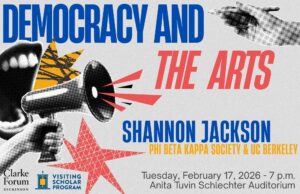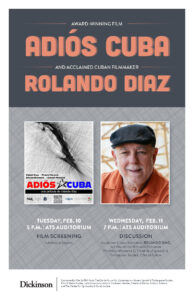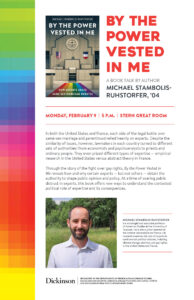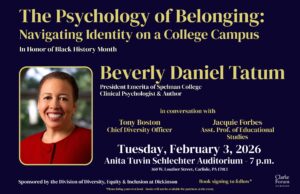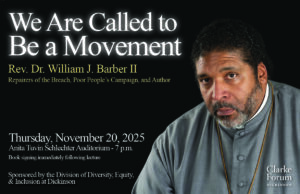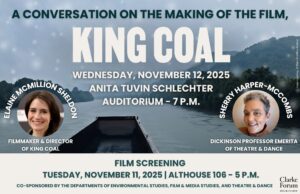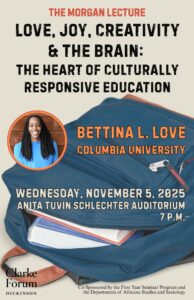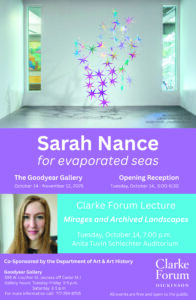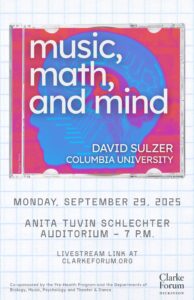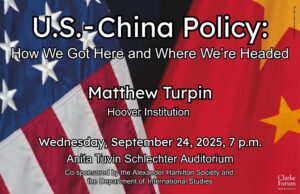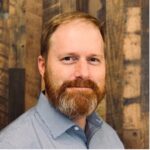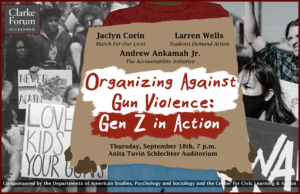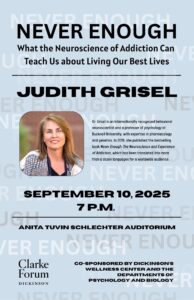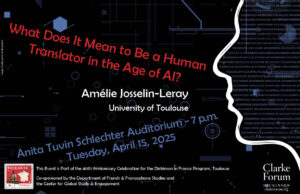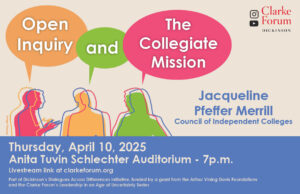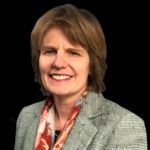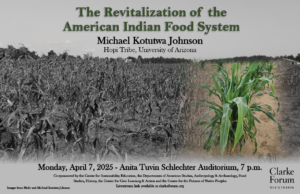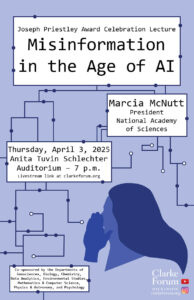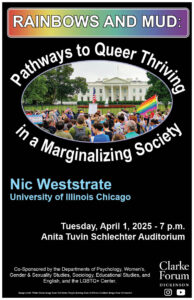Thursday, February 26, 2026
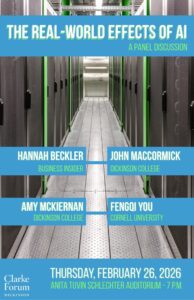 Anita Tuvin Schlechter Auditorium, 7 p.m.
Anita Tuvin Schlechter Auditorium, 7 p.m.
Real-World Effects of AI
Panelists
Hannah Beckler, Business Insider
John MacCormick, Dickinson College
Amy McKiernan, Dickinson College
Fengqi You, Cornell University
Last July, the current US administration announced an action plan for “Winning the AI Race” which includes almost 100 federal policy actions, among them the dissolution of federal regulations around AI development and the promotion of rapid buildouts of data centers. This panel explores what the AI boom means for all of us, from scientific research, healthcare diagnostics and automated content creation to its effects on public utilities and the environment. The speakers will discuss different applications of generative AI and a range of ethical concerns its use poses. The panel will be moderated by Sara Markowitz, assistant director of the Clarke Forum for Contemporary Issues.
This program is presented by the Clarke Forum for Contemporary Issues and is part of the Clarke Forum’s Leadership in an Age of Uncertainty Series.
Topic overview written by Layla Ilarraza ’26.
Biographies (provided by the panelists)
 Hannah Beckler is an award-winning investigative reporter at Business Insider. Her work has been honored with a National Magazine Award and the Hillman Award in Read more
Hannah Beckler is an award-winning investigative reporter at Business Insider. Her work has been honored with a National Magazine Award and the Hillman Award in Read more

